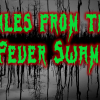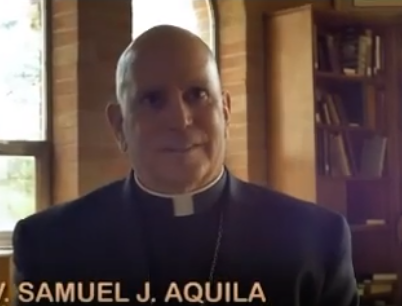The Colorado Catholic Conference, an organization representing the state’s Catholic bishops, is urging parishioners to “call or email their elected officials” to urge them to support legislation outlawing the death penalty in Colorado.
“We have always been staunch supporters of repealing the death penalty here in Colorado, and all of the bishops have spoken very publicly about the need to repeal and abolish the death penalty,” Jenny Kraska, director for the Colorado Catholic Conference, told the Catholic News Agency.
Denver Archbishop Samuel J. Aquila took a public stance against the execution of convicted Chuck-E-Cheese murderer Nathan Dunlap, who’s death was temporarily stopped by then Gov. John Hickenlooper, a Democrat, in 2013.
“My faith tells me that Dunlap’s crimes were sinful because murder ignores the human dignity which comes from being created in God’s image,” wrote Aquila in a Denver Post opinion. “But I believe that justice must also respect human dignity. My faith holds out hope for the possibility that some good can come from every single human life.”
This year, Aquila told Denver Catholic, “Human life is inherently good, even if a person chooses to commit horrible crimes. In the past, in certain circumstances, the death penalty made sense, since society struggled to protect itself from people who committed murder. But our prison system has improved to the point that we are able to respect the dignity of human life and to protect society. Given this reality, Colorado should not perpetuate the cycle of violence by taking further life, especially when the death penalty’s effectiveness as a deterrent to crime is in doubt… We believe, as many people of faith do, that God created every person in his image and likeness. This fact should form the basis for our laws. Being an unborn child, a person with a disability or a criminal does not change this inborn dignity. It’s possible to allow sin to disfigure that likeness, but our underlying dignity is not something that can be forfeited.
“When the state unnecessarily engages in taking someone’s life, even a guilty person’s, it commits more violence and takes away the opportunity for the conversion of criminals.”
The Catholic News Agency reported last week:
Kraska said mercy, redemption, and healing should be made available to both victims and criminals. She said prisoners should not only have the chance to change and seek repentance, but the families of victims should be able to have interactions of forgiveness with the perpetrator. If people are put to death, these opportunities are lost, she said.
“For the Catholic Church, obviously, it’s about a consistent ethic of life, and we believe that all life has intrinsic value and whether that is life in the womb, life at the end of life, or life of somebody who has committed an atrocious crime,” she told CNA.
“We don’t think it is the right of the state or anyone to kill somebody. Perpetuating violence with violence is never the answer,” she added.
Opponents of the death penalty repeal say that people who commit some horrible crimes should be put to death and that, at least, the question should be decided by voters, not the legislature.
Also this legislative session, Catholics organized churches in opposition to a comprehensive sex education bill, with Aquila arguing that the legislation, which requires a curriculum inclusive of LGBTQ experiences, was contrary to Christian teachings. “We know that God made us male and female, in his image and likeness, but the comprehensive curriculum route which most schools will likely adopt teaches innocent children this is not true,” wrote Aquila this year.
The Repeal the Death Penalty Act is expected to clear the state legislature and be signed by Gov. Jared Polis, a Democrat.




